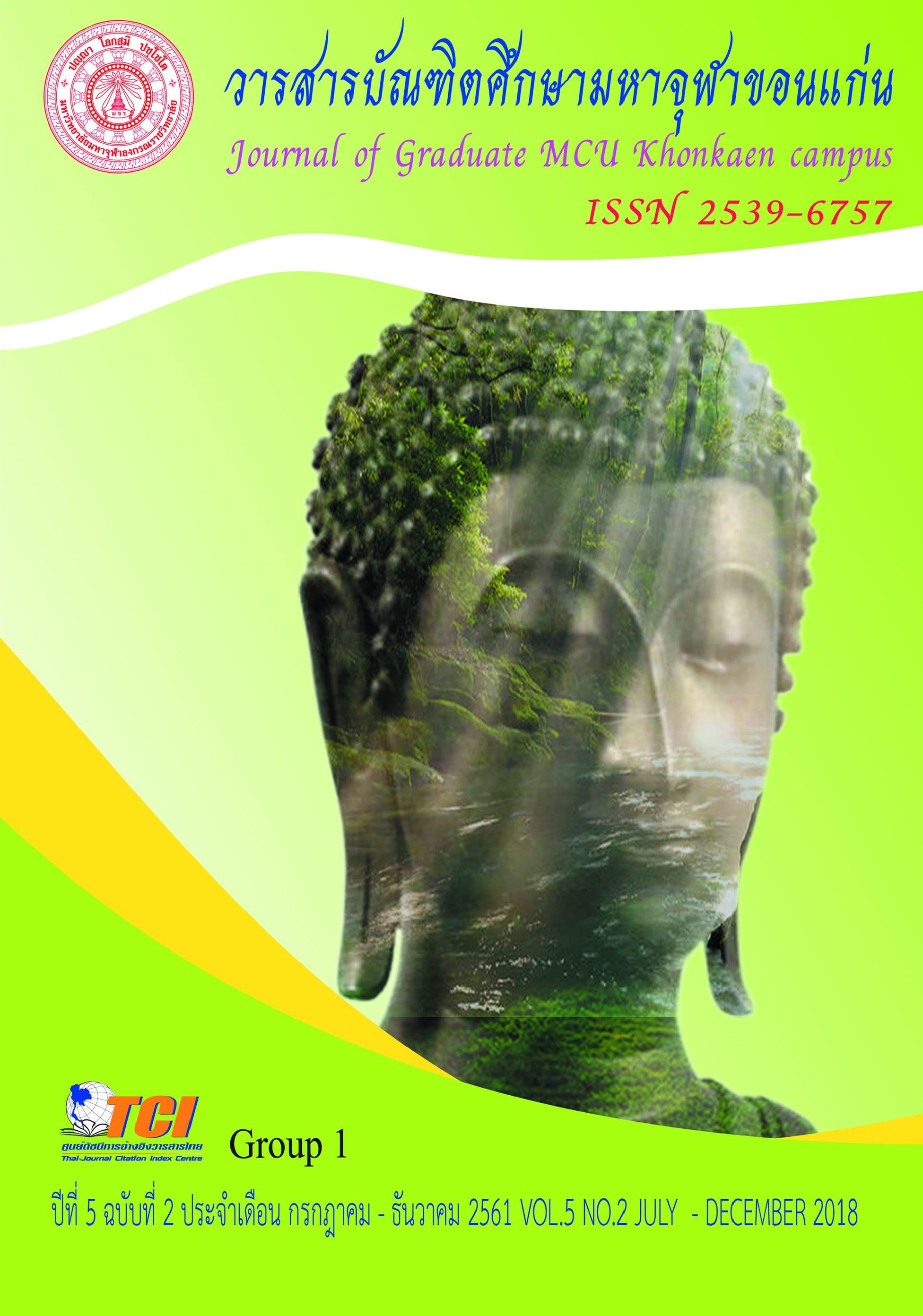ปัจจัยที่มีผลต่อการดำเนินงานตามหลักธรรมาภิบาล ของมหาวิทยาลัยราชภัฏกลุ่มภูมิภาคตะวันตก
Main Article Content
บทคัดย่อ
การศึกษาเรื่อง “ปัจจัยที่มีผลต่อการดำเนินงานตามหลักธรรมาภิบาลของมหาวิทยาลัยราชภัฏ กลุ่มภูมิภาคตะวันตก” มีวัตถุประสงค์เพื่อ (1) ศึกษาสภาพปัญหา และผลกระทบที่เกิดขึ้นในการบริหารงานของมหาวิทยาลัยราชภัฏกลุ่มภูมิภาคตะวันตก ซึ่งไม่เป็นไปตามหลักธรรมาภิบาล และค้นหาปัจจัยที่ช่วยให้การดำเนินงานเป็นไปตามหลัก
ธรรมาภิบาล (2) เพื่อศึกษาปัจจัยที่มีผลต่อการดำเนินงานตามหลักธรรมาภิบาลของมหาวิทยาลัยราชภัฏ กลุ่มภูมิภาคตะวันตก และ (3) เพื่อศึกษาแนวทางการบริหารงานของมหาวิทยาลัยราชภัฏ กลุ่มภูมิภาคตะวันตกที่ช่วยยกระดับผลการดำเนินงานตามหลักธรรมา
ภิบาล การศึกษาครั้งนี้ใช้ระเบียบวิธีวิจัยเชิงผสม กลุ่มตัวอย่างการวิจัยเชิงปริมาณ คือ อาจารย์ และเจ้าหน้าที่ จำนวน 346 คน เก็บข้อมูลด้วยแบบสอบถาม และกลุ่มตัวอย่างการวิจัยเชิงคุณภาพ ประกอบด้วย (1) อาจารย์ (2) ผู้บริหาร (3) กรรมการ (4) เจ้าหน้าที่ และ (5) หน่วยงานเครือข่าย จำนวน 20 คน เก็บข้อมูลด้วยการสัมภาษณ์แบบเจาะลึก และการสนทนากลุ่มย่อย
ผลการศึกษาพบว่า ปัจจัยที่มีผลต่อการดำเนินงานตามหลักธรรมาภิบาลในภาพรวมมีค่าเฉลี่ยอยู่ในระดับมาก เรียงตามลำดับจากมากไปน้อย คือ ด้านภาวะผู้นำการเปลี่ยนแปลง ด้านโครงสร้างสภามหาวิทยาลัย ด้านการจัดทำแผนกลยุทธ์ และด้านหลักธรรมาภิบาล และสำหรับ ผลการดำเนินงานของมหาวิทยาลัยราชภัฏ กลุ่มภูมิภาคตะวันตกในภาพรวมมีค่าเฉลี่ยอยู่ในระดับมาก เรียงตามลำดับจากมากไปน้อย คือ ด้านการทำนุบำรุงศิลปะและวัฒนธรรม ด้านการวิจัย ด้านการบริการวิชาการ และด้านการผลิตบัณฑิต มีค่าเฉลี่ยน้อยที่สุด นอกจากนี้ สมการพยากรณ์ที่ได้จากการวิเคราะห์แบบถดถอยพหุคูณกับผลวิเคราะห์ความสัมพันธ์ระหว่างปัจจัยที่มีผลต่อการดำเนินงานตามหลักธรรมาภิบาลกับผลการดำเนินงานของมหาวิทยาลัยราชภัฏ กลุ่มภูมิภาคตะวันตกพบว่ามีความสอดคล้องกันโดยชี้ให้เห็นว่า การจัดทำแผนกลยุทธ์, ภาวะผู้นำการเปลี่ยนแปลง และหลักธรรมาภิบาล เป็นปัจจัยที่มีผลต่อการดำเนินงานตามหลักธรรมาภิบาล
The objectives of this study were to (1) study the problems and impacts of work management which were negatively affecting of Good Governance operation, and also search for the operation factor for solving the problems (2) study the factors affecting the Good Governance operation, and (3) study the approaches for work management which help to enhance the result of the Good governance Operation. This research was mixed-method research. The quantitative data were collected by questionnaires from lecturers and officials, a total of 346 persons. The qualitative data were collected by in-depth interview and focus group discussion from 1) lecturers 2) Executives 3) Commissioners 4) Officials and 5) Associate Agencies, a total of 20 persons.
The results found that the overall average of factors affecting the Good Governance operation was in high level, which can be ordered issues by descending as follows: Transformational Leadership, University Council Structure, Strategic Planning, and Good Governance. The overall average of the result of Good Governance operation was in high level, which can be ordered issues by descending as follows: Art and Cultural Preservation, Research and Examination, Academic Assistance, and Graduates Producing. Moreover, the predictive equation from the multiple regression analysis and the correlation between factors affecting the operation of good governance operation were accordant, which indicated that the Strategic Planning, Transformational Leadership, and Good Governance, were the factors affecting the Good Governance operation.
Article Details
เอกสารอ้างอิง
Lertnaisat, R. (2004). The strategic planning. (3rd ed.). Bangkok : Technology Promotion (Thailand - Japan), EPPO. Association. Meesook, P. and Theerakul, S. (2008). Higher Education Quality Crisis and University Role. Songkhla : Thaksin University. Minister of Education. (2004). Rajabhat University Act, B.E 2547. Online. Retrieved April 24, 2017. From : http://web.krisdika.go.th/ data/ law/ law2/%c134/%c134-20-2547-a0001.pdf Ministry of Education. (2011). 15 Year Education Development Plan (20072011). Online. Retrieved December 12, 2017. From : http:// www. thailibrary.in.th/2013/11/10/higher-education-plan-11/ Office of the Higher Education Commission. (2010). Internal Higher Education Quality Guarantee Guide Book 2010. Online. Retrieved December 5, 2017. From : http://www.mua.go.th/ Oke, Adegoke. , Munshi, Natasha. and Walumbwa, Fred O. (2009). The Influence of Leadership on Innovation Processes and Activities. Organizational Dynamics, 38(1), 64-72. Prueksa-Roongrueng, Bung-Orn. (2010). The Good Governance Indicator Development in Private Higher Education. Doctoral thesis : Saim University.

